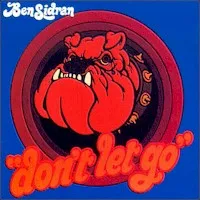Time: 58:41
Size: 134.3 MB
Styles: Cool jazz
Year: 2013
Art: Front
[3:28] 1. Jazz My Blues (Feat. Mike Gillan & Alan Faugue)
[3:38] 2. Zenato (Feat. Alan Faugue, Mike Gillan, Pat Felitti & Bill Watson)
[3:51] 3. Put It There (Feat. Mike Gillan, Bill Watson & Alan Faugue)
[5:01] 4. A Loving You (Feat. Alan Faugue, Pat Felitti, Bill Watson & Mike Gillan)
[2:37] 5. Polytone Blues (Feat. Alan Faugue, Bill Watson & Mike Gillan)
[4:13] 6. Copping A Blue Feel (Feat. Alan Faugue, Mike Gillan, Bill Watson & Pat Felitti)
[4:10] 7. When The Sun Comes Up On You (Feat. Bill Watson, Mike Gillan & Alan Faugue)
[3:44] 8. The Way You Move (Feat. Bill Watson, Pat Felitti & Mike Gillan)
[4:50] 9. Only As Strong (Feat. Mike Gillan, Alan Faugue, Bill Watson & Pat Felitti)
[3:59] 10. Piazza Deleon (Feat. Mike Gillan, Alan Faugue, Pat Felitti & Bill Watson)
[4:20] 11. Cool Latin Jazz (Feat. Mike Gillan, Pat Felitti, Alan Faugue & Bill Watson)
[3:19] 12. Single Malt Blues (Feat. Bill Watson, Alan Faugue & Mike Gillan)
[3:54] 13. Carmine Lips & Rouge (Feat. Bill Watson, Mike Gillan & Alan Faugue)
[3:00] 14. Pink Flamingo (Feat. Bill Watson, Mike Gillan & Alan Faugue)
[4:29] 15. Half Tone Blues (Feat. Mike Gillan, Pat Felitti, Bill Watson & Alan Faugue)
New release from composer, guitarist, and vocalist Denny Earnest, treading new territory with "Jazz My Blues" with a free wheeling quartet of veteran Jazz players. From the opening salvo title track, he's trading vocal licks with alto sax player Alan Fauque, "Need some Coltrane with my coffee, if I'm to make it til noon". Through it all, the records satisfying, staying true to the roots of Jazz and Blues, anchored on the bottom end with Mike Gillan's percussive talents, glued together by upright bassist Bill Watson, and weaving through all the traffic like a New York cabbie Pat Felitti on piano. No gimmicks or wasted notes here. 15 new tunes written by Denny in the finest traditions of Jazz improv, Slick Jazz, hot, cool, or whatever your infusion.
Jazz My Blues










